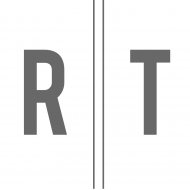
I was recently provoked to envy by an Instagram post. I realize that is the main purpose of Instagram – to show us meticulously staged moments which make our own lives seem drab. But this time it was in the description more than the image that I glimpsed an enviable vision of the good life.
The picture was of a young couple travelling across the country and living out of a van. Now, I have already been young, and it is a condition I do not wish to revisit. Also, I am a homebody who values regular showers and clean laundry, so they can keep their van. What sent me into revery was the description of the couple. They didn’t have much money, it said, but what they did have was plenty of time for “reading, writing, hiking, and thinking.”
Reading, writing, hiking, and thinking. I would like to spend more time doing those four things, to enjoy their slow and ponderous pace. I am anxious to miss out on a great many things; to ignore the stream of diversions that constantly beckons. In short, I would like to practice a minimalism of the soul.
These thoughts occurred to me recently as I watched Minimalism: A Documentary About the Important Things. The movie cobbles together interviews with a variety of people, all of whom adjure you to join their tribe. (Perhaps “church” would be a better word. The movie is incurably religious.) The thesis is that we all want to be free, but we are imprisoned by our stuff. We work hard so that we can buy new things, but this endless stream of purchases will never make us happy. The result is inescapable misery. We have built our own gilded cage, full of cheap clothes and gadgets.
In the movie, freedom is synonymous with purging. Get rid of your stuff. Maybe trade your suburban home for a tiny house. Remove yourself from the crushing cycle of getting and spending. Minimalism isn’t sold merely as a way to get more closet space. Instead, it’s the path to living more simply, more authentically, and with greater control.
Admittedly, this is a compelling vision. I relish the thought of paring down until the only things that remain in my life are those things that I really want. I approvingly imagine a sparse and gleaming house. But wouldn’t a well ordered mind be worth more than well ordered cabinets. But this is easier said than done.
Matthew Crawford explained the phenomenon in his book, The World Beyond Your Head:
“Think of the corporate manager who gets two hundred emails per day and spends his time responding pell-mell to an incoherent press of demands. The way we experience this, often, is as a crisis of self-ownership: our attention isn’t simply ours to direct where we will, and we complain about it bitterly. Yet this same person may find himself checking his email frequently once he gets home or while on vacation. It becomes effortful for him to be fully present while giving his children a bath or taking a meal with his spouse.”
It seems that our diversions may be more difficult to part with than our possessions. Crawford investigates the possibilities of “skilled practices” as an antidote to chronic distraction. When we engage in tactile activities such as cooking a meal, riding a motorcycle, or building a musical instrument, we are interacting with the real world on its own terms. These activities guide our attention. And that guidance differs qualitatively from the manic shrieking of radio ads and click bait headlines.
Conversation with other people offers a similar reorientation. When we diligently attend to other people, we are engaging with a real part of the world on its own terms. It would be rare, I think, for someone to have a long conversation with their child and later lament the time they missed with their cellphone.
Most of us are not in a position to be able to travel around the country in a van. (My friends Darren and Lindsey Smitherman might protest this point.) But that doesn’t mean that we have to resign ourselves to cluttered minds and disordered souls. We can choose a short list of worthwhile things – reading, writing, hiking, and thinking, for instance – and begin the hard work of discarding the clutter.
